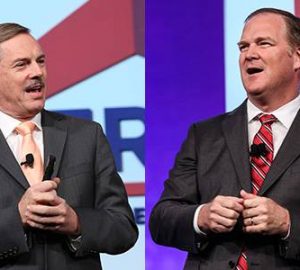The Department of Housing and Urban Development, the Federal Housing Authority, the U.S. Department of Veteran Affairs and the U.S. Department of Agriculture are several of the “non-essential” agencies affected by the government shutdown that started today. Since they all offer federal loan programs to qualified consumers, it is worth exploring what the impact will be on the real estate industry. Understanding the effects, both short- and long-term, can help you to manage your business, manage client expectations and manage change during this time.
FHA loans
FHA-insured loans, available to borrowers making down payments of as little as 3.5 percent, currently comprise 15 percent of the mortgage market. Most other mortgages are destined for securitization by Fannie Mae and Freddie Mac, which require that borrowers putting down less than 20 percent obtain private mortgage insurance. While the FHA will technically be allowed to continue to endorse and process (underwrite and approve?) new single-family loans, only 3.8 percent of the agency’s 9,000 employees will staff the department, likely leading to delays and backlogs. Multi-family loans will be endorsed but not processed during the shutdown.
VA Loans
VA Home Loans, part of the U.S. Department of Veteran Affairs, are provided by private lenders, such as banks and mortgage companies. The VA guarantees a portion of the loan, enabling the lender to provide you with more favorable terms. Part of the VA loan process involves verifying veteran status by obtaining a Certificate of Eligibility, which could be delayed. Lenders have the ability to issue COE’s provided they have access to the VA database, but in some instances, the VA may have to provide the COE.
USDA Loans
Also known as Rural Development loans, USDA Home Loans offer 100% financing to qualified buyers, and allow for all closing costs to be either paid for by the seller or financed into the loan. A USDA loan must be approved by the state’s USDA representing office. According to the USDA contingency plan, no new loans or guarantees will be issued during the government shutdown.
Income Verification
With all loans, the bank requests a 4506T from the IRS. Called a Request for Transcript of Tax Return, this confirms the tax returns that were submitted to the bank and the tax returns that were submitted to the government are the same and is a measure put in place to reduce loan fraud. During the government shutdown, the IRS will not be able to process these forms, which will slow down loan approvals.
Image courtesy of Stuart Miles at FreeDigitalPhotos.net


